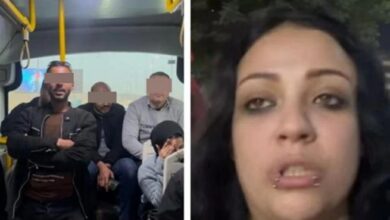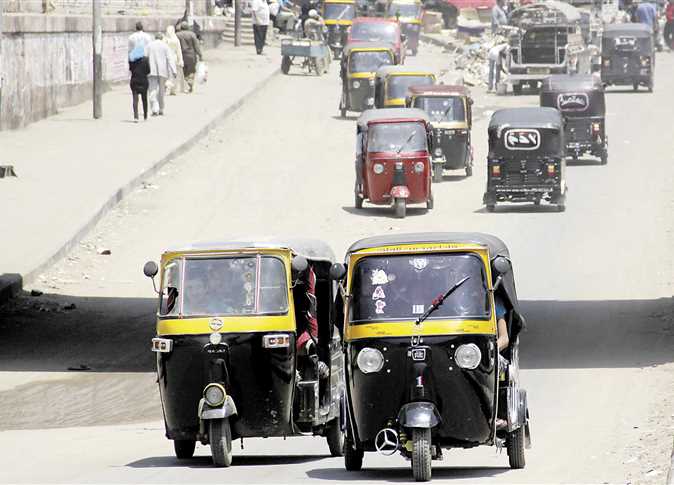
In April, an Egyptian parent revealed the story of her three-year-old son being sexually abused by a security guard at the boy's school, an international institution with a good reputation.
Many parents then reported similar incidents involving their sons in the same school, and as the school's management tried to deal with the fall-out, parents began withdrawing their children from classes, fearing further sexual abuse.
The incident was not the first high-profile case of child sex abuse in Egypt, with media outlets reporting several cases of children being abused by family members or close acquaintances over the years.
However, there are no up-to-date figures on the scale of the child-sex abuse problem in Egypt, although based on studies from previous decades, the phenomenon seems to be widespread.
A study published by Ain Shams University in 1995 claimed that around 18 percent of Egyptian children are sexually abused, and in 35 percent of these cases the abuser is a family member or close acquaintance.
The most recent report was published in 2013 by the Association of the Development and Enhancement for Women (ADEW). It reported on 48 cases of sexual harassment of female school pupils in five governorates at the hands of their teachers.
While the data appears to be sketchy, there is no doubt among child rights activists that the problem is real, and action of some sort is needed.
Raising awareness with SAFE
One relatively new Egyptian NGO called "SAFE" is seeking to tackle the problem head on, raising awareness among both children and parents, encouraging victims to speak up and start a process of healing.
The NGO was launched in 2012 by the founder Sara Aziz, a certified counselor for children who are victims of molestation.
SAFE gives informative sessions to children and parents to raise their awareness of sexual abuse, while offering psychotherapy sessions for children who have already have been sexually abused.
These therapy sessions include painting activities to relieve the stress and anger, along with the "empty chair" activity, in which an empty chair is placed in front of the victim, allowing them to "talk" to the abuser as if he was sitting in this chair.
Children sometimes cry or scream during the sessions as their pain is allowed expression.
“These sessions can prevent any psychological consequences from happening to children that might last with them when they grow up," Mariam Nader, project manager for SAFE, tells Egypt Independent.
"The sessions reassure the children and teach them how to protect their body to avoid any similar incidents in future," says Nader.
The NGO has two age categories: those up to nine years old, and those over nine, which includes mostly teenagers.
“Unfortunately, most of the incidents happen to victims between the ages of three years and nine years,” Nader says.
Most of the victims of sex abuse seen by SAFE are boys, a fact that Nader puts down to societal attitudes
“It’s the outcome of a wrong traditional way of teaching only girls to protect their body, so we forgot that boys have private parts too,” she says.
Speaking to Al-Kahera Wel Nas television channel, Aziz said that those who abuse children are often people they already play with and know, meaning they already have a concrete friendship.
"He could be the uncle, the father, the grandfather, the neighbor, the brother, the house guard, the sports trainer or the teacher,” Aziz said.
“We don’t have statistics, but the occurrence of child sex abuse is noticeable in Egypt. In most of these incidents, the abuser is a family member, and 93 percent of the world’s statistics reflect that,” Aziz said.
Nader says sexual abuse often happens due to family instability and weak relationships between the family members.
“When the parents are violent to their kids and don’t have a dialogue with them, the child usually resorts to someone else who is kinder, and that could be the abuser," Nader said.
"Ask your children not to play the 'doctor game' with anyone, because this is a common method used by abusers to attack children, to play a doctor who can examine the child," she said.
Teaching methods
Nader says that special teaching methods are used to get the messages across to children, including telling stories, singing and doing simply activities.
“We usually start with asking some question to pave the way for the main one. For instance, 'Would you allow anyone to pull your hair out?' Then we ask, 'Would you allow anyone to put his hand inside your clothes?'” Aziz says.
SAFE also has a 18-page book for children called “I’m precious”. It's about two six-year-old children called Seif and Salma who know their bodies and their private parts very well, and that nobody has the right to see or touch them.
The book narrates numerous stories involving the two kids who say “no” to people who want to violate their right to protect their body.
One story, for example, is about Seif, who says "no" when his friend asks to join him in the toilet. When he gets home, Seif then tells his mother about the incident.
The story aims to encourage children to tell their parents everything without being frightened.
“You should have a strong relationship with your kids. They should learn to tell you everything that happened during their day. And if they were abused, don’t panic and never frighten them. You should warmly understand the situation,” Aziz said.
She said that one mother was reading one of the stories about not allowing people to change their diapers, when she was shocked to hear the boy report an incident involving his sister. He said that the house guard was touching her sister’s private parts, alleging that he was changing her diaper.
“While narrating stories we have discovered many incidents of abuse that happened to the children. They did not know that it was a sexual harassment. Also, some of the parents were abused when they were kids, but they were too scared to tell anyone,” Nader said.
The SAFE program has been providing sessions at schools and businesses, traveling to rural areas and slums.
“Some of people’s in the rural areas and slums did not welcome the idea in the beginning, alleging that such things do not happen in Egypt. But after a while, they took a seat and listened carefully to our session,” Nader said.
Nader said that the NGO has a YouTube channel filming some of the sessions and the songs. The project is seeking to sign with a sponsor to launch a TV advertisement campaign, thus expanding the range of tools for awareness raising.




